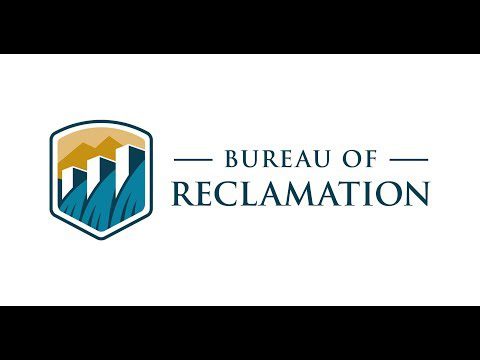Bureau of Reclamation Selects Water-Efficiency Improvement Projects

Local grants are part of a total $40.99 million from Reclamation to 54 projects across the West
WASHINGTON – The Bureau of Reclamation has selected 54 projects to share $40.99 million in WaterSMART Water and Energy Efficiency Grants to help projects use water more efficiently and effectively in the western United States. Five projects located in Colorado will receive a total of $4.58 million.
“The WaterSMART Program is helping Reclamation address the West’s water challenges,” said Reclamation Commissioner Brenda Burman. “Water and Energy Efficiency Grants provide water districts and communities the needed assistance to modernize their water delivery infrastructure and increase hydropower generation.”
Projects are located in California, Colorado, Idaho, Kansas, Montana, Nebraska, Oklahoma, Oregon, Texas, Utah, Washington and Wyoming. The types of projects receiving funding include canal lining, advanced water metering, flow measurement and real-time monitoring of water deliveries, and pressurized irrigation systems.
Water and Energy Efficiency projects are selected to receive funding through a competitive process. The following projects were selected in Colorado:
City of Aspen, Aspen Intelligent Metering and Meter Replacement Project
Reclamation Funding: $500,000; Total Project Cost: $1,259,697
- The City of Aspen will convert 4,000 residential and commercial accounts to advanced metering infrastructure (AMI).
- By improving leak detection and reducing customer overuse, the project is expected to result in annual water savings of 273 acre-feet, which represents 9% of the City’s current demands.
- The project will allow the City to reduce diversions and allow for the conserved water to remain in the Roaring Fork River for neighboring communities and the native ecosystem.
City of Grand Junction, City of Grand Junction Advanced Metering Infrastructure Project
Reclamation Funding: $300,000; Total Project Cost: $1,821,141
- The City of Grand Junction, located in western Colorado, will upgrade 4,069 manual-read water meters with advanced metering infrastructure compatible meters.
- The City will also install a fixed network data collection system that will automatically collect and store hourly consumption data from its 9,867 customer meters.
- By providing customers with real-time data, the project is expected to result in annual water savings of 741 acre-feet, which is currently lost to customer overuse and leaks.
- As a result of the project, the City expects to reduce diversions from the Kannah Creek watershed, leaving water in the river system or otherwise making water available for other uses in the Upper Colorado River Basin.
City of Greeley, Greeley AMI Meter Installation Project
Reclamation Funding: $1,486,538; Total Project Cost: $6,059,617
- The City of Greeley, located in northern Colorado, will convert 14,500 standard water meters to advanced metering infrastructure meters and integrate the smart meter software with Greeley Water’s Supervisory Control and Data Acquisition system.
- The project is expected to result in annual water savings of 1,129 acre-feet currently lost to seepage, leaks, and customer overuse.
- The water conserved will remain available in storage, supporting the City through multi-year droughts. Surface flow rights can also be sent downstream to meet return flow obligations or be made available for other uses.
City of Longmont, Longmont Automated Meter Reading Project
Reclamation Funding: $800,000; Total Project Cost: $2,642,605
- The City of Longmont, located north of Denver, will upgrade 7,629 residential and 711 large analog water meters to meters with automated meter reading (AMR) technology.
- Once completed, the project will provide a continuous flow of data that will notify staff of customer leaks, backflow events, meter tampering, and no flow events. In addition, the new meters will provide customers with real-time data on their water usage.
- The project is expected to result in annual water savings of 361 acre-feet currently lost to leaks and customer overuse.
- The water conserved will remain instream and better prepare the City for population growth and prolonged periods of drought.
City of Thornton, City-Wide Advanced Metering Infrastructure and Residential Meter Conversion Project
Reclamation Funding: $1,500,000; Total Project Cost: $4,000,000
- The City of Thornton located near Denver, Colorado, will install a city-wide advanced metering infrastructure system and replace 19,919 low resolution residential meters with high resolution meters.
- The project is expected to result in annual water savings of 1,665 acre-feet currently lost to inefficient customer water use and leaks.
- The project will support statewide goals to address water supply gaps in the state and South Platte Basin and to integrate water quantity and quality issues.
- The water conserved will remain in Thornton’s storage reserves and reduce demands for treated water and diversions from the over-appropriated South Platte Basin.
Learn more about all of the selected projects at https://www.usbr.gov/watersmart/weeg/docs/2020/2020_WEEG_Project_Descriptions.pdf
Learn more about the WaterSMART Water and Energy Efficiency Grants Program at https://www.usbr.gov/watersmart/weeg/
Through WaterSMART, Reclamation works cooperatively with states, tribes and local entities as they plan for and implement actions to increase water supply reliability through investments to modernize existing infrastructure and attention to local water conflicts. Visit www.usbr.gov/watersmart to learn more.
# # #
The Bureau of Reclamation is a federal agency under the U.S. Department of the Interior and is the nation’s largest wholesale water supplier and second largest producer of hydroelectric power. Its facilities also provide substantial flood control, recreation opportunities, and environmental benefits. Visit our website at www.usbr.gov and follow us on Twitter @USBR.


